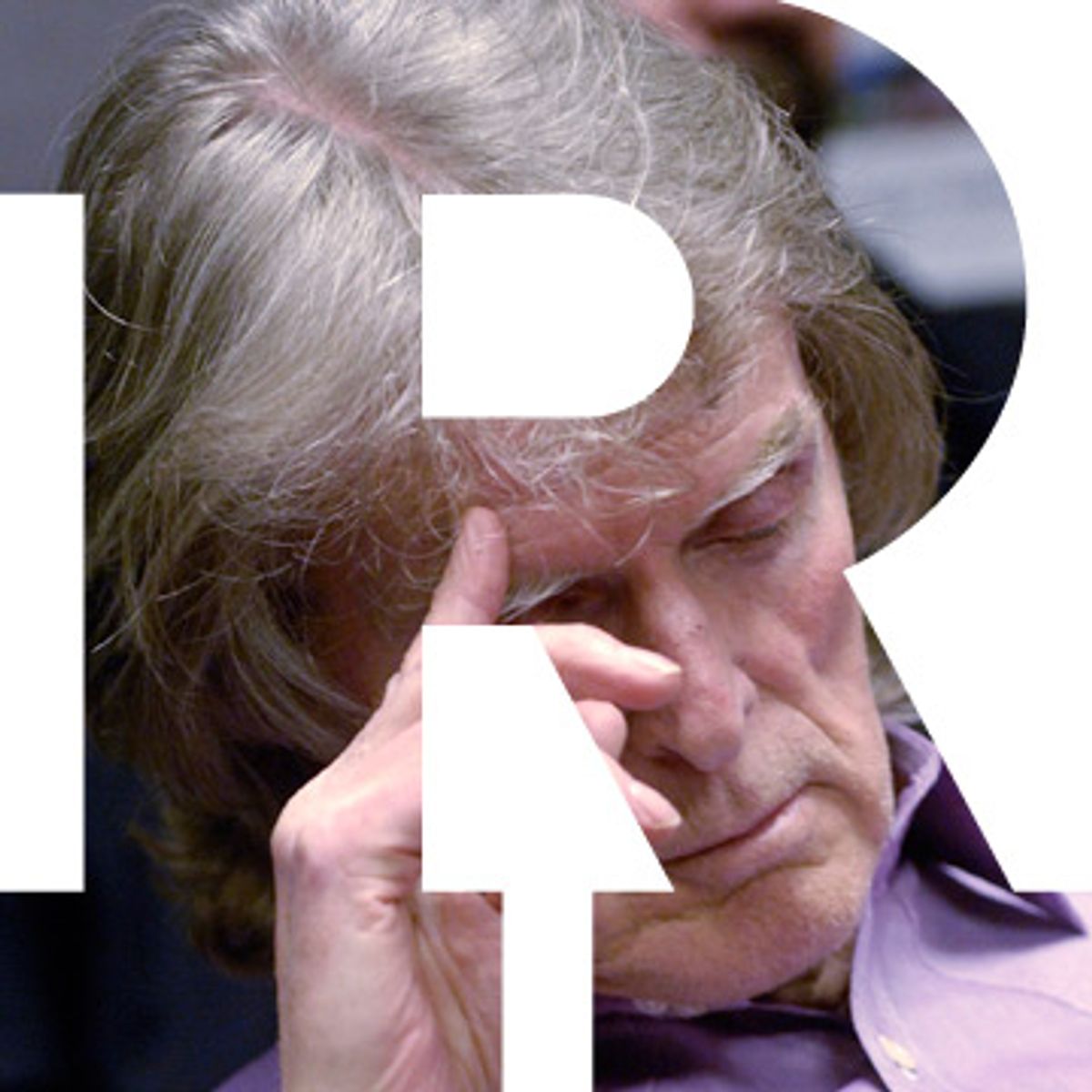Whatever the true motivation behind the decisions by NBC and CBS to rid themselves of Don Imus, the executives who decided to jettison the bullying schlock jock managed to focus on what mattered most to them. Perhaps they were pandering to frightened advertisers or perhaps they were soothing outraged employees, but the network suits ultimately ignored all the special pleadings, racial diversions and other distracting irrelevancies.
So should the rest of us, when Imus and his defenders whine about the injustice inflicted on him this week.
It doesn't matter whether rappers or anybody else use the same disgusting language that Imus and his sidekick Bernard McGuirk used when describing the Rutgers basketball team as "nappy-headed hos." Imus himself tried out a version of this argument when he appeared on the Rev. Al Sharpton's radio show, pointing out that although he is indeed a white man, he is hip enough to know that "ho" is a term of disrespect heard in the black community. This is a stupid argument, roughly akin to claiming that white ownership of slaves was justifiable because black Africans sold them. The only issue for NBC and CBS was the standard of discourse on their programming, not what some idiots may be saying somewhere else.
It doesn't matter whether Sharpton -- or any of the other Imus critics -- has raised equally loud objections to vile rap lyrics. There are many reasons, of course, to discount Sharpton as a moral exemplar. Like Imus, he hasn't hesitated to exploit prejudice as part of his act. But changing the subject to the preacher's checkered background doesn't exonerate Imus. Regardless of the preacher's always amazing alacrity, he was not the victim here and his role is not the issue. What Imus did would demand redress even if Sharpton had never elbowed his way into the controversy.
It doesn't matter whether the journalists and politicians who appeared on the Imus show think he should be forgiven. Special pleading by anyone who has benefited from airtime with Imus is obviously not worth much. Every celebrated bigot has friends and sycophants who will vouch for his purity of spirit, so why should we believe the Imus posse any more than the cronies of David Duke or Louis Farrakhan? The proof is in the transcripts, where the vicious evidence is overwhelming. His friends' impulse to defend him may be understandable as a matter of loyalty, although former Boston Globe columnist Tom Oliphant surely turned many stomachs when he assured Imus, "Solidarity forever, pal." As for the preening suggestion by his guests that the Imus show provided serious political discussion available nowhere else on the airwaves, that scarcely requires contradiction. All of these fine minds -- and their great thoughts! -- can be found quite easily in other venues. Which may be where they will explain why they went along with his sickening act for so many years.
It doesn't matter how much money Imus donated to charity. The largess bestowed on a few children by him and his wife -- with as much self-aggrandizing fanfare as possible, incidentally -- did not license him to damage millions of others with his pathological ranting. It entitled him to a tax break, which no doubt he enjoyed to the maximum.
It doesn't matter whether Imus apologized, hopes to apologize to the Rutgers women in person, or promises never to utter racist remarks again. Anyone who has been paying attention knows that he has made such promises and apologies before. They were meaningless then and they would be meaningless today. On "Larry King Live," Imus friend Bo Dietl seemed to argue that MSNBC was wrong to let him go before he "had a chance" to speak with the Rutgers team he insulted, and that they should somehow decide his fate. But there is no reason to burden those women with that responsibility -- which rested solely with his employers.
From the beginning, the only relevant question was whether the networks would uphold decent values. Under pressure of conscience or commerce or both, NBC and CBS did the right thing -- and sent a refreshing message that all the excuses in the world cannot change.



Shares